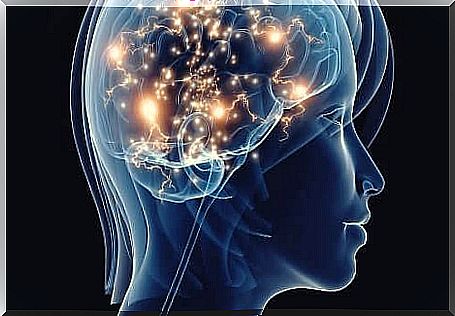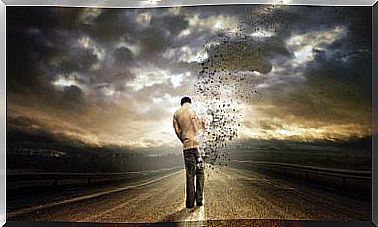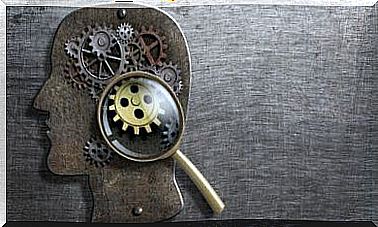How Do People Perceive Themselves With Depression?

We all fight countless battles. Work, family, our relationships, etc. Every day is a new challenge in many ways. In this sense, it is the battle we wage on ourselves that can lead to depressive states that paralyze us. We now know that people with depression often increase the resonance of their symptoms.
A report published by Dr. Kopala-Sibley suggests that in depressive states one should focus less on the symptoms. And more on how a person feels about themselves. This could be one of the keys to the origin of depression. Better to treat the origin than the symptoms.
The report’s findings support Higgins’ theory of self-divergence. According to this theory, our “I” has 3 different aspects: the real self, the ideal self and the responsible self. This research by Kopala-Sibley indicates that when there is a divergence between the ideal ego and the real ego, it is very likely that we are in the presence of depressed people.

How does self-divergence occur?
We construct our self-divergence according to several variables. We believe that our “I” is a single entity, when it is not. Thus, we have an I that defines us, who we are in reality and at the present moment, the real I.
But there are other parallel I’s, like the “I” that we can become. There is also the ideal ego. The responsible ego is also part of the group. It is the one that indicates how we should act in the face of the customs and roles that we adopt in society.
You can be sure that you are a competent, intelligent and hard-working person. However, if in real life these characteristics do not bear fruit because your professional situation puts limits on you, conflict arises. In this case, the gap between the ideal self and the real self is the one that will make you fall into depression.
Self-esteem also depends on the perceived distance between the real self and the ideal self. Self-esteem is very much linked to our psychological well-being. Its erosion makes us more vulnerable to depression. Gray matter levels in people with low self-esteem are lower in certain areas of the brain that are responsible for becoming what others think about us.
Internal history
Our real selves and our ideal selves are linked according to the history we have built about ourselves and how others perceive us. Self-esteem is good when this distance is minimal. It is thus probable that if signs of depression appear, we are faced with a significant divergence between the real ego and the ideal ego.
The internal histories we have during times of depression make us believe that our ideal self is too far removed from our real self. To be able to bring these 2 realities together, we can modify our stories and our internal dialogue. Focusing on what we could change to get closer to our ideal Self is a good start.
Mindfulness
If after making an internal history change we still feel that there is not much that can be done to get closer to the ideal Self, we can focus on practicing mindfulness. This type of practice closes the gaps between the real self and the ideal self.
The immediate benefit of this type of meditation is that you can learn to observe your own thoughts without judging them. Giving up the position of judge greatly improves the depressive state. The progressive self-acceptance in depressed people is another form of bringing together these 2 realities.

Perception of Depressed People: Aligning Real Beings with Ideals
It is perhaps not a question of achieving perfection, but of admitting this space for improvement as a ground for us to surpass ourselves. Treating ourselves with love will give us a quieter emotional environment in which to set goals while we eliminate others.
A negative emotional state often increases the existing distance between our actual Self and our ideal Self… Until we end to interrupt the relationship between these 2 concepts. Practicing these strategies can go a long way in helping to control our expectations as well as the frustration that can result. Depression, in this sense, is undoubtedly a sign that we are interested in our internal differences and that we work on them.










